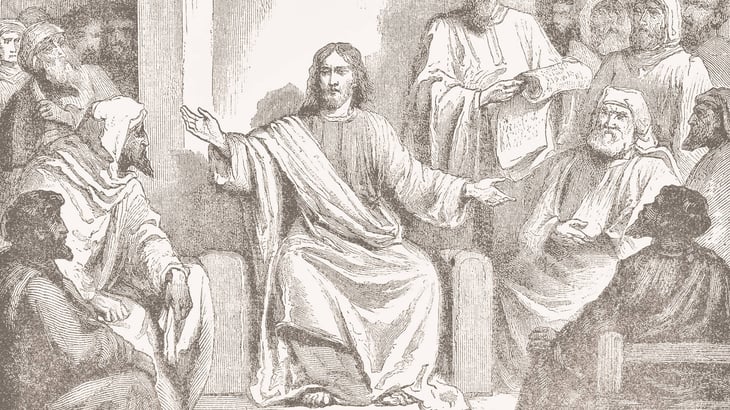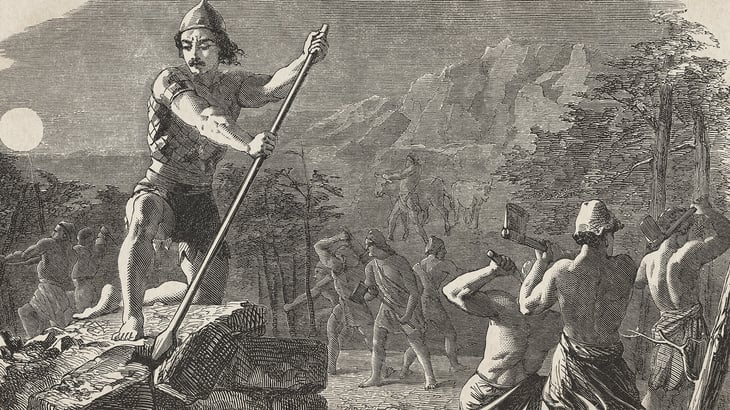Digging Deeper into Scripture: Mark 9
In Mark 9:30-37, Jesus’ disciples demonstrate concern over who is the greatest. The issue of rank among the twelve takes on new meaning as we consider the context of the passage.
Samuel: Prophet, Priest, and Judge
This blog post is an excerpt from the Lutheran Bible Companion, Volume 1: Introduction and Old Testament.
On Preaching About Hell: Gerhard’s Advice
This blog post is adapted from Gerhard’s Theological Commonplace On the End of the World and On Hell, or Eternal Death, specifically Gerhard’s notes on the practical pastoral benefits of preaching on hell.
Digging Deeper into Scripture: Mark 7
Mark’s Gospel is one of immediacy. Without the account of John the Baptist’s birth or that of Jesus Christ, Mark moves immediately to Jesus calling the disciples, healing, casting out demons, cleansing the leper, teaching parables, and raising the dead. In Mark, Jesus also feeds the five thousand and walks on water. His ministry created quite a stir. So much so that the Pharisees and teachers of the law came from Jerusalem to investigate—as seen in Mark 7:1–13. This investigation was likely motivated by jealousy, insecurity, and fascination or curiosity.
Redemption and Symbolism in Ruth
This blog post is adapted from Lutheran Bible Companion, Volume 1: Introduction and Old Testament.
One of the first matters to require attention is the real import of Ruth’s oft-quoted speech in 1:16–17, expressing her resolve to accompany Naomi. One should take care neither to read into Ruth’s words more than is actually said nor fail to hear them in total context.
Works-Righteousness: Luther’s Response to His Opponents
This blog post is adapted from Luther’s Works, Volume 61: Theological and Polemical Works.
These notations made by Martin Luther regarding the Bible passages used by his opponents to support works-righteousness were gathered by Veit Dietrich during Dietrich and Luther’s stay at the Coburg as the Diet of Augsburg progressed. Although he never completed the book, these fragments offer insight into Luther’s thinking during a critical point in the history of the Reformation.
Preaching on Texts That Are Light with Gospel
One of the challenges that pastors face as they prepare sermons is what to do with texts that are heavy on Law and light on Gospel. As I look at the four assigned lectionary texts for each preaching occasion, I am often drawn toward preaching texts where the Gospel predominates quite clearly in the text. Perhaps other pastors can relate. If the text has overt, obvious Gospel, it becomes much easier to move from the Gospel in the text to the Gospel for the congregation. But how do we handle texts that are light on Gospel? Texts that do not blatantly point us to the Good News of Jesus? Below are two ideas.
The Order of Creation and the Pastoral Office
This blog post is adapted from Male & Female: Embracing Your Role in God’s Design.
The order of creation and the unique relationship between head and helper in marriage intersects significantly with the theology of the pastoral office. If the pastoral office is a gift given by Christ to His Bride, the Church, how do we know from Scripture that it should be filled only by men and not by women as well? This goes back to Genesis and the institution of marriage, and it also draws on Ephesians 5 and the way in which marriage is a picture of Christ and the Church.
Digging Deeper into Scripture: Genesis 9
Relief had finally come. God created Adam and Eve perfectly. But their wicked transgressions brought sin into the world, taking the Lord’s unblemished creation into destruction. Adam and Eve were expelled from the Garden of Eden, forced to work a stubborn earth, and forced to give birth in pain. Their son Cain killed his brother, Abel, confirming the wickedness of man’s heart.
Seeing this egregious depravity in humanity, God chose to flood the earth, destroying everything. Yet He kept Noah in the faith, making him blameless among his generation. God instructed this servant to build an ark so a pair of every living creature, male and female, could reside during the deluge.
Worshiping Idols in the Book of Judges
This blog post is an excerpt from the Lutheran Bible Companion, Volume 1: Introduction and Old Testament.
By breaking the seemingly innocuous command to “make no covenant with the inhabitants of this land” (Jgs 2:2; cf Ex 23:32), Israel began its downfall. Israel was to be His arm of justice against Canaanite peoples whose measure of wickedness was full and overflowing.






















